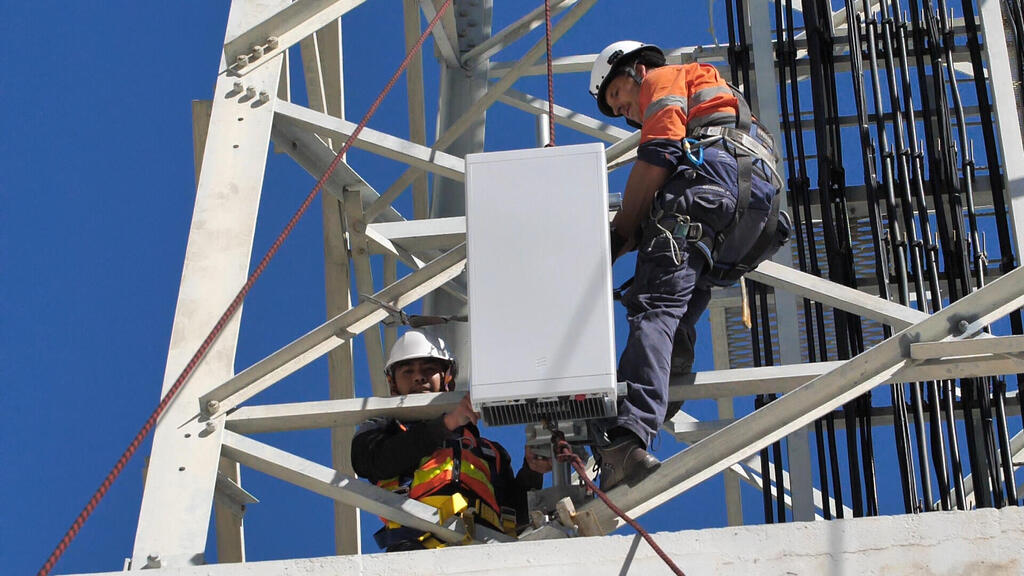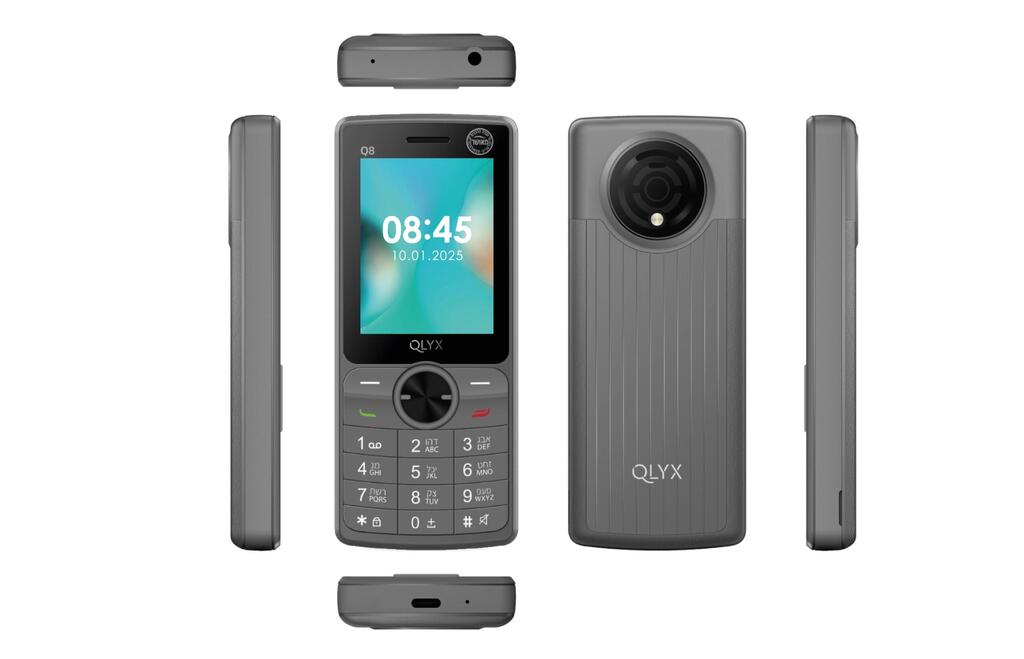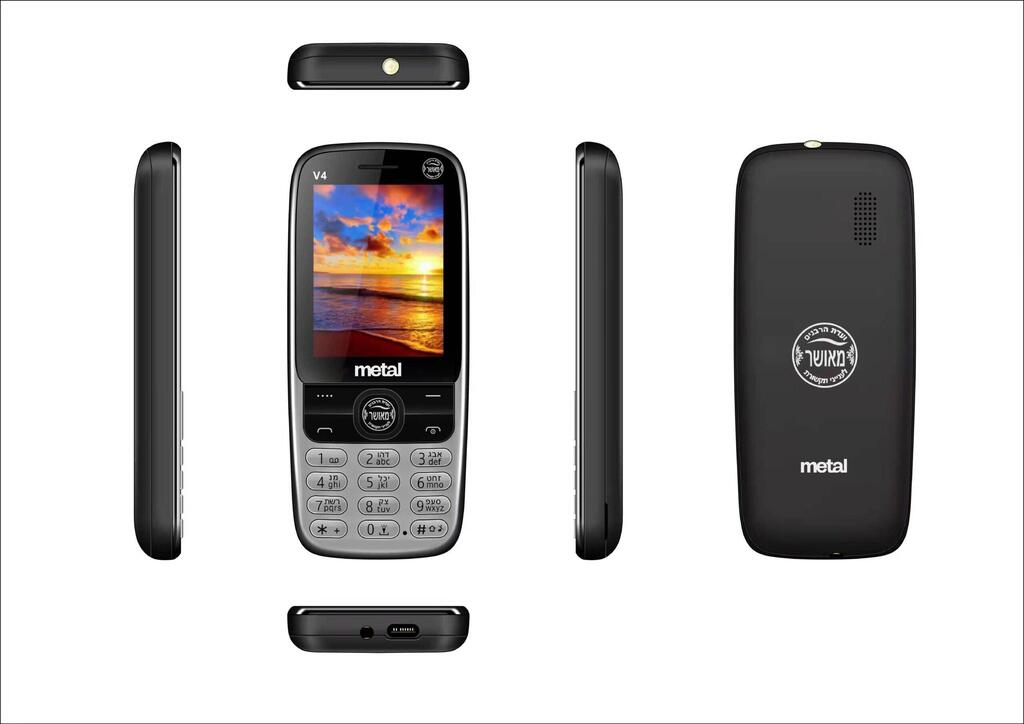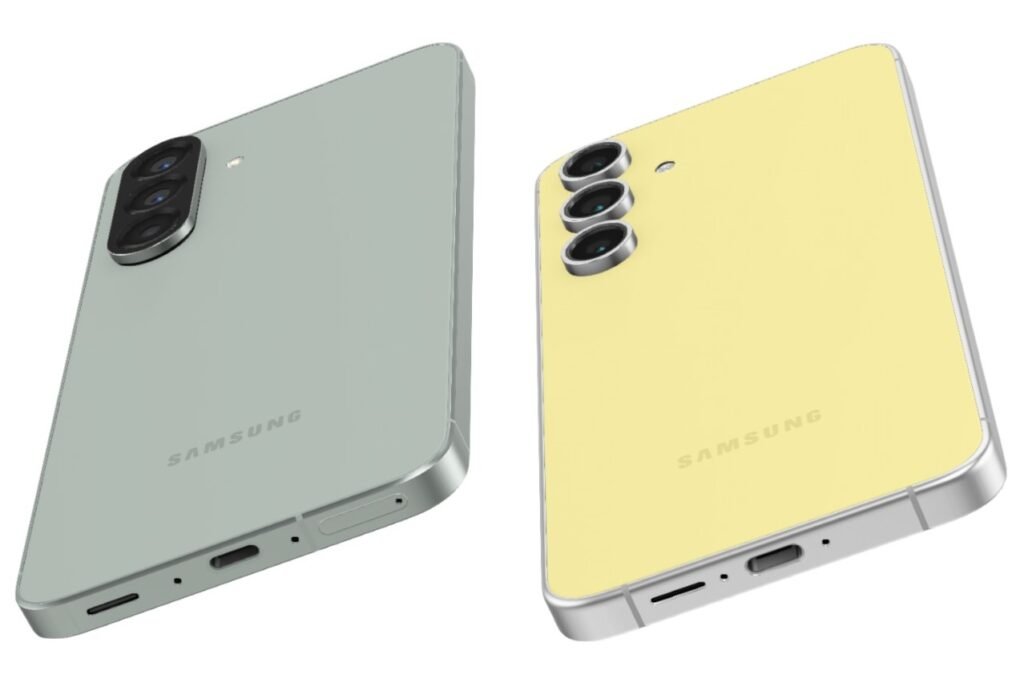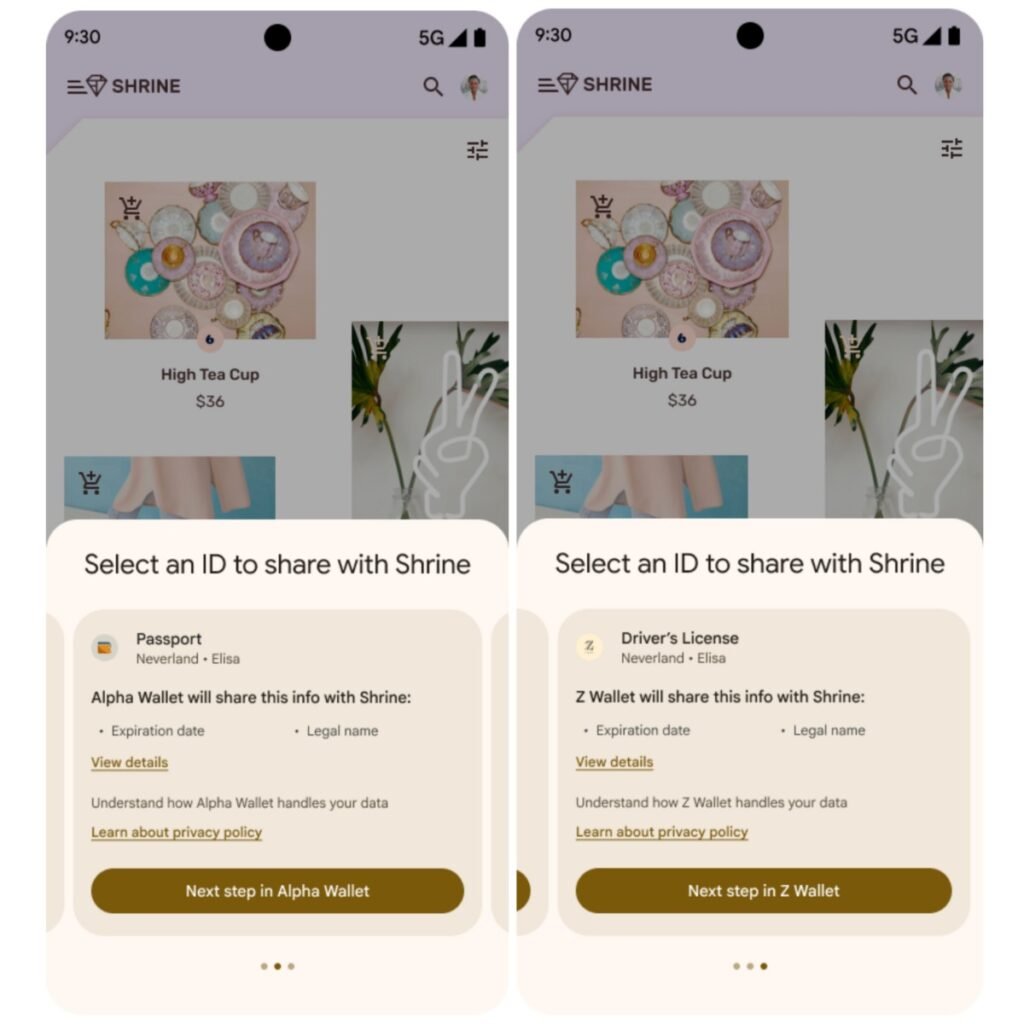This was one of the most significant—and traumatic—moves in the mobile sector in the U.S. in recent years: In February 2022, the telecommunications giant AT&T pulled the plug and permanently shut down its old 3G network. This move, which came five years after the shutdown of the 2G network in 2017, aimed to free up valuable frequencies needed to increase the capacity and coverage of more advanced and efficient 4G and 5G networks.
The immediate effect was staggering: Although AT&T announced the move well in advance and repeatedly notified all owners of old mobile phones, hundreds of thousands of elderly people, low-income individuals, and residents of remote rural areas were suddenly cut off from direct communication with the world. They discovered that their basic phones simply stopped making and receiving calls, including essential calls to the police and emergency services.
But it wasn’t just life-line phones—devices that combine SIM cards for communication: emergency buttons in homes, elevators, and cars (eCall), vending machines, electricity, gas, and water meters, home security systems, electronic monitoring bracelets for prisoners, electric gates, and devices for tracking stolen cars. In Arizona, Florida, and New Jersey, ATMs were disabled. Isolated seniors, whose medical alert devices allow them to summon help at the push of a button, were put at real risk.
This scenario has repeated itself with varying intensity in more than 60 countries worldwide that have already implemented similar moves, and it could also materialize in Israel in just eight months—specifically, at midnight on December 31, 2025. As of now, this is the ultimate nightmare for all heads of mobile companies in Israel and the Ministry of Communications.
According to a directive from the Ministry of Communications, issued back in 2021, by December 31, 2025, mobile providers are required to permanently shut down their 2G and 3G networks. These outdated and inefficient networks currently operate on radio frequencies considered high-quality for reception (800, 850, and 900 MHz). These frequencies, which are state resources, are needed for the expansion and improvement of 4G and 5G networks, and generally for the next era of mobile communication, based on high-speed internet and massive data volumes.
“This is not a shutdown; it’s development and progress,” says Maimon Shmila, the senior engineering director at the Ministry of Communications, who oversees the issue. “We have no choice. It’s like turning dirt paths meant for carriages into high-speed highways.” Currently, according to the Ministry of Communications, about one million old mobile phones (“feature phones,” with very limited features) operating on 2G and 3G networks are still active across Israel. This is a huge number—about 10% of the approximately 10.5 million personal mobile phones in the country.
So who are the people still preferring, in 2025, small, cheap, and “dumb” devices that only allow making and receiving calls—with physical buttons, no touch screens, some with embarrassingly low-quality cameras, and no access to WhatsApp, Instagram, or the internet?
Despite common belief, most 2G and 3G devices are not held by the ultra-Orthodox community as “kosher” phones completely stripped of messaging and internet options. In fact, only about 150,000 of the one million active 2G and 3G devices in Israel are held by ultra-Orthodox individuals.
The remaining 850,000 are spread across the general population. Among them are low-income individuals and foreign laborers who simply want to save on the high costs required to purchase even a basic smartphone; seniors who struggle with touch screens and the technical complexity required to operate a modern smartphone; children, whose parents want to prevent exposure to harmful content and the dangers of social media; and criminals, who see them as a cheap and safe tool for anonymous use, using SIM cards with allocated calls.
There is also a large group of completely normative users who see the abandonment of smartphones as a principle, as they are exposed to advertisements, invade privacy, distract, and more. For example, MK Avigdor Lieberman (Yisrael Beiteinu) has proudly used his basic Nokia phone for years, claiming, “Only a foolish person holds a smartphone.”
It turns out that this is a growing phenomenon in the West, also adopted by young Generation Z, and a year ago, The New Yorker magazine dedicated an entire article to it. Among other things, it mentioned an online company founded by a couple from Los Angeles that makes a fortune selling “dumb phones” to “people who want to reduce their screen time,” and a new manufacturer of such phones, Light Phone, which doubled its sales this year.
In addition to the one million owners of 2G and 3G phones, there are about half a million old SIM cards still integrated into various devices and systems across Israel. All of these need to be reached in the remaining months and replaced.
A year ago, ahead of the shutdown of the 3G network in Australia, the Therapeutic Goods Administration (TGA) published a list of medical devices that could be affected during the shutdown; it included pacemakers and implanted defibrillators, glucose data transmitters for diabetics, sleep apnea treatment devices, and more. In Switzerland, one of the first countries in Europe to completely shut down its 2G network, it was discovered at the last moment that more than half of the elevators in the country relied on it for emergency calls.
What is the critical challenge facing mobile companies?
The task is not only difficult to impossible—it is also critical: the major concern among mobile companies is the collapse of their service systems on January 1, 2026. Even if only one percent of the one million customers who did not manage to replace their devices remain by then—and there will likely be more—this still amounts to about 10,000 people who will suddenly swarm into their stores, service centers, and call centers, effectively paralyzing them.
Even if, from a technological standpoint, this is a simple move, the challenge is primarily marketing: in the months remaining until the deadline, the Ministry of Communications and the mobile companies must do everything to reach every last user of an old device, warning them that their device will be shut down at the end of the year, which is at least compatible with 4G and VoLTE technology (Voice over LTE). VoLTE uses the internet to transmit voice in high quality, eliminating the device’s reliance on 2G and 3G for voice calls.
Just two years ago, there were fears in the ultra-Orthodox community that it would not be possible to produce “kosher” devices that meet this requirement, which would not only be “dumb,” meaning cheap and with only basic features, but also completely blocked from internet access and SMS messages, which led to urgent pressures from them on the Ministry of Communications to retract the decree.
The pressures only managed to achieve an extension: according to the original plan, as a preliminary step, it was already prohibited in January 2023 for mobile providers to allow the activation of new 2G and 3G devices—under pressure from the ultra-Orthodox, Communications Minister Shlomo Karhi agreed to postpone the implementation of the ban by six months for organizational purposes.
In practice, fears were unfounded: the ultra-Orthodox activists and the “Rabbis’ Committee” dealing with kosher mobile phones found importers who managed to locate devices worldwide that meet the requirements. Today, more than 20 models of basic mobile phones compatible with 4G and VoLTE can be obtained in the country, most of which are also “kosher,” for prices ranging from 150 to 600 shekels. About 350,000 out of approximately half a million “kosher” ultra-Orthodox mobile customers already own devices compatible with 4G and VoLTE that have been properly converted.
This is a parallel world of mobile phones that look like they survived from the 90s; it features mainly obscure “sticker brands” produced in China and India, such as QLYX, Escolls, Cyclone, First Phone, and others, alongside well-known brands like Xiaomi and Nokia (now HMD, which acquired the brand rights). Samsung has long exited this market.
Yair Ben Atar, the owner of the mobile store “The Lab” in Even Yehuda, sells a considerable number of “dumb” devices compatible with 4G each month: “I already have many customers who have made the switch. The price is $77 for a device that is suitable for 4G. You’d be surprised how many seniors prefer these devices, and I explain to them that it’s not wise to wait until the last minute and discover they have no communication.”
Reaching the 150,000 problematic customers remaining in ultra-Orthodox centers will be relatively easy through targeted marketing messages via sector-specific communication tools—but the main challenge that has yet to be cracked is the 850,000 other customers who continue to use old devices. Mobile companies intend to soon launch targeted marketing campaigns. The Ministry of Communications will also join with its own campaign in the last quarter of the year.
In the meantime, valuable time has been wasted: sources within mobile companies claimed to us this week that for a long time they warned the Ministry of Communications that the spam law, which prohibits them from sending marketing messages to phones without the customer’s consent, limits their ability to warn customers.
While it is relatively easy to reach the ultra-Orthodox audience, the main challenge that has yet to be cracked is the 850,000 other customers who continue to use old devices. Just a few weeks ago, the ministry agreed to be flexible: from now on, they will be able to increase the frequency of notifications and even use “Flash SMS” – a message that opens on the screen without needing to press any button. In “kosher” devices, which do not display SMS messages, they will be able to initiate calls with a voice message.
What are the companies doing to inform users?
“We hold frequent meetings and examine ideas. Among other things, the companies have posted explanatory pages on their websites, and some publish lists of supported and unsupported devices. Some have even suggested developing a feature that allows any phone owner to easily check if their device meets the requirements or needs to be replaced.”
According to sources in the companies we spoke with, the indifference among owners of old devices is also fueled by the hope that these will be replaced for free.
“That won’t happen,” states a senior official at a leading cellular company, “in the country, there is a complete separation between purchasing a cellular subscription and purchasing a device; a gift is given to the customer, and tomorrow they might abandon us for another company.”
In contrast, Israeli carriers Cellcom, Pelephone, and Hot Mobile, which sell cellular devices certified by the “Rabbinical Committee,” are already offering for purchase specially imported compatible devices. Pelephone and Hot Mobile even subsidize the devices, up to $41 for a cellular phone. Partner does not sell “feature phones” or kosher devices.
What about the “dumb” phones that seem to have come out of the 90s but support 4G?
There are also those approved by the authorities.
How will you manage to reach elevators, irrigation systems, and remotely operated gates?
“Cellular companies are currently working in this area and mapping who is behind each such device. Regarding defibrillators, for example, we knew how to handle it because they are operated by MDA and United Hatzalah; we approached them, and they are replacing all the SIM cards. We also warned all municipalities that installed locks in shelters that open remotely using a cellular SIM.”
What about the cellular tracking sensors installed in cars?
“We will allow them to continue transmitting until 2030 in a minimal segment of 2G frequencies, which will not interfere with the closure of the networks. In general, our policy is to positively consider reasonable exceptions, as long as they do not harm competition or the rules we have established.”
What if by November the large numbers do not decrease?
“People tell me: ‘Why are you even trying? Just shut down the networks, and you’ll see that within a week everything will be fine.’ And I respond: that’s true, everything will be fine within a week or two, but still, it keeps me awake at night. I think about what will happen on the night of January 1 to someone who has an accident and cannot call for rescue forces, or to a woman in labor who cannot order an ambulance? Don’t wait until the last minute.”

